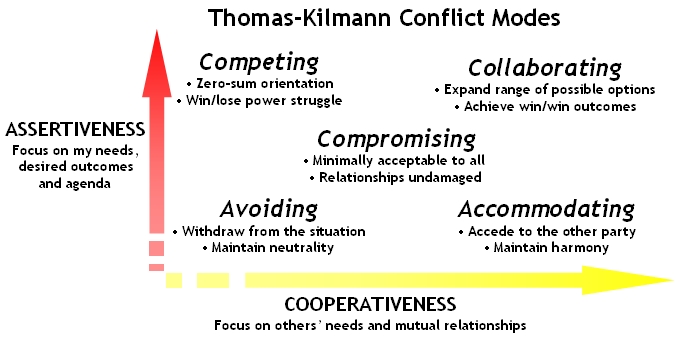 Summer is winding down and parents everywhere are looking at the upcoming school year...some with joy and excitement, others with fear and trepidation. You see, some parents have kids that do well in school, get along with others, lead themselves and their peers well. But some parents have kids that are picked on, harassed or bullied by other kids. And some parents have the bullies. To help you prepare your kids for back to school, I have put together some tips from John Maxwell's YouthMAX Leadership Program that can help you and your child deal with the new school year in a positive, empowering way. Leadership Is Influence Everything rises and falls on leadership, and leadership is all about influence. Kids are never too young to be taught these principles. By teaching our kids how to lead themselves well, we can give them the coping skills to handle the situations that they face every day. In order to do that, we must first teach them integrity. And you guessed it - the way to teach/influence/lead them is by modeling it ourselves! Setting up a strong moral code for them gives kids the foundational beliefs that will guide them through their entire lives. Very simply, teach them what you believe and teach them by your example. Kids watch their parents and learn by imitation, rather than by memorization. It's the old "do as I say, not as I do" thing that we need to be careful of here. Hopefully, they will begin positively influencing their peers as well by acting with integrity. Choices Determine Character Helping kids build character is another important part of teaching them about leadership. "Character" is the accumulation of qualities that make us dependable and trustworthy. Things like honesty and integrity are the keys to good character. It is that concept of doing the right thing even when no one is watching. They will see that, by being honest, people will learn to trust them - Mom and Dad included. Another good character behavior to model is keeping your word. When they see you follow through with plans or promises, they will know that it is an expected behavior. Teach them to do what they say they will do. Character, and life in general, is a product of the choices we make. This applies to adults and children. Teaching kids to listen to their inner voice can be challenging if you're trying to do it out of context. Look for "teachable moments" with your kids and it can be a lot simpler. When you witness someone else making a poor choice, you can use that opportunity to discuss what they would do in the same situation and talk about possible outcomes. Maybe it was your not-so-great choice that you can discuss with them - a traffic violation, for example. Or maybe you were the bully in school and you can teach them what not to do. I tell kids the story of going back and apologizing to the kids I made fun of in junior high because as an adult I finally realized the impact of my stupid behavior, and even though it was years later, I wanted to make things right. We have to teach our kids to accept responsibility for their own actions, and teach them the self-discipline to make good choices. Everyone makes mistakes, but how we recover that mistake is important - owning up and apologizing when we have made a bad choice is a sign of good character. Lift Up, Stand Up, Pick Up We frequently hear news reports about kids being bullied. Some leading to terrible tragedies, like suicide and severe beatings or even death. There are three really simple principles to teach your kids that can help them deal with various interpersonal situations - and teach them how NOT to be the bully. First of all, kids need to use their words to Lift Up others. Words are very powerful and can emotionally tear another person down. They can also build a person up! Encourage them to use them to Lift Up others and celebrate their good attributes and support them! Offensive language, put downs - or insults, and threats of pay back are all typical tactics used by bullies. Remind them how bad it feels when they are spoken to in this way and help them understand other's feel just as bad when they do it to them. Empower your kids with the knowledge that leadership is influence - and that they have influence - and you empower your child to Stand Up to bullies on behalf of themselves and others. Statistics show that, in most cases, if someone says something in the first five seconds, the bullying will stop. If kids are confident in their leadership skills, they will be confident enough to help someone who is being bullied. By teaching them all of these skills and empowering them to believe in their own leadership abilities, you can help your son or daughter Pick Up someone who is being bullied. Here are some ideas to implement at home to help kids develop values and make decisions based on those values:
P.S. Bullies grow up and go into the workforce! All of these tips apply to us as well. We can show strong character, we can lead ourselves and our teams to do the right thing - Lift Up, Stand Up and Pick Up others at work, too! I'd love to know how you're preparing your kids to be little leaders this school year. Do you talk with them about character, bullying and leadership? If so, share with us your recommendations in the comments!
1 Comment
 Leadership is defined as “the action of leading a group of people or an organization”. However, I believe that good leadership means leading ourselves first! For women, the leadership roles that we take on – by choice, by chance, or by necessity – can be both rewarding and overwhelming. The rewards are pretty obvious; successful business ventures, happy relationships, growing families and close friends. These things can all be overwhelming, too. Let’s face it, they all involve real work on some level and they all need your consistent involvement. As we move through our day-to-day responsibilities we often lose ourselves in the needs of those we lead and serve. Think about it: when was the last time you postponed something that you needed or wanted and instead invested your time and energy in your family or business? Did you skip your workout to schedule a last-minute meeting? Stay up late so you could catch up on emails? Cancel plans to meet a deadline? Put off a hair appointment for a kid's soccer game? Hey, it happens, we all do it. But when it starts to happen more often than not, you need to look at what you’re really sacrificing. Oxygen Mask on YOU First As women, we face a unique set of challenges in leadership, both in the business world and at home. We are expected to find a work/life balance that meets the needs of our clients and families and still allows us to have a life away from the needs of others. You remember that “life", right? Dinner with friends, that hobby you love, time to pamper yourself…whatever it is the rejuvenates you? If you forgot, it’s probably because that is the first thing to go when things get busy or stressful at work or at home. And as leaders, it can be difficult to find a way to manage stress that doesn’t create yet another time-management conflict. What if I told you that you can, and should, carve out the time you need to keep yourself mentally and physically well? In fact, your business and your personal life can benefit from your well-being. The reason they tell you on the airplane to put the oxygen mask on yourself first applies in our day to day lives as well, if we can't lead ourselves well, we are not going to be able to lead others well. Communication is Key Another huge factor in good leadership success is effective communication. Your verbal communication skills are obviously very important. The success of your life hinges on your ability to communicate your ideas, plans, and goals in an effective manner. However, communication is more than the conveyance of words. We communicate verbally and non-verbally and the better we are at creating shared meaning with those we lead, the more success we can have. Learning how to effectively communicate with colleagues, employees, family members and friends can help you simplify your life by cutting down on misunderstandings. It can also help you increase efficiency at work and is a very important part of successful conflict resolution. Help is Here! Finding that balance between the things that need to be done and the things you would like to do can be difficult - this is where I can help you. My Leadership Retreat for Women is a unique opportunity for you to learn how to lead yourself well – body, mind and business. Discover why it is so important to take care of yourself, learn new leadership skills and how your well-being can positively impact your leadership experience - and have FUN! Meet like-minded women and learn, together, new skills to improve your life and business in a relaxing environment. Forget about boring conference rooms and Power Point presentations. As we work through this two-part weekend, we will be on the beach, poolside, on a catamaran and at the spa. The first part of the retreat will focus on evaluating how you take care of yourself and implementing plans for growth and development. During the second half of the retreat, we will work on improving our communication, conflict resolution and interpersonal skills as leaders. Click here for more information or to complete the application for the retreat. Space is extremely limited; don’t miss your chance to take part in this unique approach to self-development. Guys, don't worry, there is something for you coming up soon as well, so stay tune! In the meantime, pass this along to a women in your life who needs to reconnect with herself.  View from my balcony View from my balcony Have you ever had such an amazing life experience that you thought you were going to need someone to pinch you to make sure it was all real? Well, that has essentially been my story over the past 10 months! It all started with my intention to transition from my corporate role to start my own leadership and personal development company, AMO Consulting. It’s been a wild ride full of crazy learning experiences with a lot of cool perks along the way that I’ll definitely share in a future post! But the biggest lesson I learned is that every crazy learning experience was worth it to be able to experience what you see in the pic…me capturing the view of the ocean from my new dream home in Puerto Rico! In June 2013, I set my intentions on starting my business. In September 2013, I set my intentions on moving to my dream location of Puerto Rico. And on April 1st, 2014, I was able to take this picture to show that my dream was no longer just a dream! I don’t know if you’re catching the key theme here, but my successes didn’t just appear in my life! My successes came from developing an intentional mindset and lifestyle that as I’ve found out…really does WORK! While I’ve learned so many things in preparing for the last 10 months and then living them…here are five steps to ensure you live the life you want instead of living the type of life you desire to change. 5 Steps to Intentional Living:
Dream big! Anna  QUIT! Stop, give up, give in to critics and take no for an answer. However you put it, quitting is the best way to ensure you won't succeed. The best way to succeed is to keep going! Even when it's tough. Even when the odds seem to be against you. When it feels like your whole life is full of rejection, keep going! If there is anything I have learned on this roller coaster ride that is the road to entrepreneurship, it is to not give up. If you're pursuing a dream, working on a hobby that you want to turn into a business, writing your first book or just striving to be better at something - the key to getting good at it is to not quit. This applies to any goal you're trying to achieve, personal and professional. We all have the same amount of hours in the day, it is our choice on how we use them. When pursuing a difficult goal, giving up will usually cross our minds - because it is HARD! It requires work, discipline and sacrifice, but if you want it bad enough it is totally worth it. Here are a few tips to help you keep going: 1. Write down specifically what you want to achieve and more importantly - WHY. Keep that greater reason front and center in your mind and in your decision making. That way, when giving up seems to be an option, you can make the choice based on your greater goal as opposed to just how you feel in the moment. 2. Keep a record of your progress. It is easy to focus on the negative, and forget all the positive things and little wins we have had along the way to a greater goal. All the baby steps matter; document them, celebrate them and use them as motivation to not give up. 3. Get support! Find people who believe in you and your dream, even when you don't. It could be joining a group of people in the same situation as you and encouraging each other and learning from each other, finding a close friend who can act as an accountability partner who lovingly checks in on you to remind you of your goals and your why and asks for updates, or hiring a professional coach to help you meet your goals and make progress. There are multiple cliches and motivational quotes that I could bring up here.... But one of my favorites is found in the wisdom of Dory from the movie Finding Nemo - "Just keep swimming, just keep swimming, just keep swimming!" I hope you get this song stuck in your head and repeat it to yourself when you feel like giving up! What are you swimming towards? I'd love to hear about your goals and dreams in the comments.  I have been learning a lot about the power of our thoughts and the subconscious mind. I recently read "As a Man Thinketh" by James Allen and highly recommend checking it out - it is available free to download for Kindle. I also saw the video below by Dr. Sharon Melnick on how to change your negative thoughts and redirect the "captain" of your ship, aka your subconscious mind. So I want to ask, who is the captain of your ship? What direction is it steering your life? Of the 60,000 thoughts you have a day, how many are taking you in the direction of your dreams? As I have become more aware of the power of my own thinking, I have been paying attention to how I talk to and about myself. I am sad to admit, but it's not always that pretty. In fact, I can be downright terrible to myself! I am not saying that we should become ego maniacs, or not work to improve ourselves - on the contrary. I am saying to be constructive and encouraging to ourselves and speak kindly to ourselves about our strengths, weaknesses and expectations. Invest in ourselves and make commitments to become better versions of us, but don't belittle, hate or discourage the version we are now. If you haven't thought much about it, take some time to listen to how you "talk to yourself" in your head. What kinds of things do you say to you? Do you lift yourself up or tear yourself down? Do you have an "I can't" mentality or "How can I"? What orders are your crew members taking from your captain? Please share your thoughts, experiences and discuss in the comments.  Hey friends, it has been a while. After a long trip, and a lot of work on getting my businesses into gear I am back and ready to focus. So, I thought what better to write about than that... This is just as much for me as it is for you! Detail planning, to do lists, focusing on one thing at a time - these are not my strength areas. Big picture plans, dreaming, visioning, I got that down! It's the details in the doing where I get lost. Overwhelmed. Stuck in analysis paralysis. Even deciding what to blog about was leading me down that road...So I decided to write about just that. Some days I feel like there are so many things I need to do that I just can't seem to decide what to do first and where my attention needs to be. I lack FOCUS. Next thing I know, the day is gone, yet I haven't accomplished much of what I wanted to because I have jumped from one thing to the next and have not given the time and attention to the most important thing for that day. I realize this issue or flaw of mine is too important to ignore and if I want to lead a better life, help others become better and live a better story, I need to get focused in order to add value to more people. Fortunately for me, there are people who have been there, done that and came up with a solution. I found just such a resource yesterday from one of my favorite authors, Donald Miller. What I like about this resource is the positivity built into the structure. I like that it sets you up for wins and includes your guiding purpose front and center every day. I also like the flexibility because I am by nature not very structured. This tool provides needed structure to be productive, but in my own way. I am taking the 30 day challenge to increase my productivity and work on my FOCUS! Click here to get the (FREE) tool. Is this something you struggle with too? Please share in the comments what has helped you get focus and be more productive!  You thought I meant cancer? Nope, not a doctor and not qualified to tell you much on that, but I do know a thing about another unpleasant big "C" - CONFLICT. And conflict can sometimes feel like a cancer if we let it. But conflict in and of itself isn't a bad thing. Just like cancer is our own cells that mutate, now there are things we can do that contribute to it, but it can also just happen. Same thing with conflict. A conflict is simply two interdependent parties having different goals or needs. Sounds pretty benign, right? It is. And it's also very normal! And inevitable! If we all wanted and needed the same things all the time, this would be quite a boring world with a LOT of boring similar people with boring lives and little innovation or excitement. “Conflict is an expressed struggle between at least two interdependent parties who perceive incompatible goals, scare resources, and interference from others in achieving their goals.” The reason a conflict can begin to feel like a cancer eating at us or damaging relationships over time is because of the way we choose to handle it! Most of us have a dominant response to conflict situations that we tend to automatically use in most conflicts without putting much choice or thought into our reaction. This dominant response is not going to be the best choice in all situations. But with a little awareness, and a few tips and tools we can become more aware of what our options are and therefore consciously choose a better way to navigate a conflict. This is a subject that can and has been studied and written about at length and I won't claim to give you the cure all in just a few paragraphs. I will however share a few things for you to consider to aid you in changing your mindset about conflict and therefore how you engage in future conflicts. One of the first things I want to point out that is evident in our definition above, is that there are two parties involved...in other words both have some contribution. In every conflict each party has some ownership. Even if you know you are right, maybe the way you make your point is contributing to the conflict, maybe even though your intentions were good, they were mistaken. However big or small, each party has contributed. Being honest with yourself and owning your contribution is a great first step in resolving issues. On the path to self awareness and choosing how to respond to various conflict situations, we first need to know what our autopilot response tends to be in these situations. A good tool for figuring that out is the Thomas-Killman Conflict Mode Instrument. It will tell you which of the five conflict styles you use most frequently. The graphic below shows the five styles and provides explanations for each and when it is best to use which style. Once we are aware of our own usual style and become familiar with our other options, we can then move toward a more deliberate and constructive manner of handling conflicts. Let me give some examples that may help explain this graphic a little better... In every conflict there are two parts, the content and the relationship. So another way we can interpret this scale is by thinking of "cooperativeness" as the importance of the relationship, and "assertiveness" as the content/issue at hand. We need to evaluate both factors in each situation and use our conclusions as the information we need to choose which style. For example, if I am experiencing a difference of opinion about where to go to dinner with my loved one and he really has his heart set on Italian but I suggested Chinese, depending on how important it is to me that I get to eat Chinese food that night and how important maintaining a positive relationship is to me, I have a few choices...I could be competing and "win" with Chinese because it is super important to me. Or I could be accommodating because I like both and I can see he really wants Italian tonight and I want to maintain the relationship. So if I care more about us spending time together that night than what we actually eat, accommodating is my best choice. However, if I choose competing just because I want to "win" not because the issue was that important, that can be an indicator of something more going on. So part of this process is evaluating why we want what we want. What is driving my position?
Now that was a pretty simple example to illustrate that conflicts can be pretty complex, even the simple ones... The point of this is to get you thinking about your options. It is not that one style is better always than others, although collaboration does have an edge because both parties are getting needs met, there are certainly situations where each style is appropriate. Games wouldn't be as fun without competition! And what if a person threatens to kidnap your child, I would hope you would choose competing because the issue is too important! If a person is running after me to cause me harm, you better bet I'm avoiding! Like some cancers, the outcome of a conflict can depend on when you address it and how you treat it. Being proactive, aware and knowing your options can help! Sorry it's a long one! Continue the discussion in the comments if you will! What is your dominant response? How's that working out for you? How can I help?  Are you one those people who never feels like you have enough hours in the day to get everything done? One of the most common things I hear people say is "I would do xyz if I had more time." Or I don't have time to workout, using a personal excuse, but the truth is not that I don't have time, reality is I don't make time. As I listened to a good friend and mentor, Jon Harrison, discuss his leadership tips last week, one thing I noticed that he does is put in the time to lead. He gives people the gift of his time. It is way too common in our businesses for leaders to say I am too busy to make time for the front line people, or get to know Joe in the basement working on the system that keeps our facility heated and cooled. But the message that this can send to those front line people is, I am too important to care about little old you. By not spending time with these people we are saying your job is not significant enough for me to get to know you as a person, what you need to do your job well or how I can support you, until something goes wrong, you mess up or I need you. Then I can yell at you without even knowing your name. This may sound like an exaggeration, but I promise you it happens every day across industries. What the best leaders know is that giving the gift of your time, even looking at it as an investment, will pay dividends on the back end. Taking the time to really learn what all the job functions are in your organization and listening to what people need from you to do these jobs well pays off in employee engagement and productivity. More importantly getting to know them as people, as mothers and fathers and golfers and artists outside of work, will create relationships that develop a loyalty that cannot be bought by an extra dollar an hour by the competition. It's also just the right thing to do! On some level we all know this is true, but back to the original I don't have time excuse...my response is make time! Build it into your calendar, daily, weekly, whatever that looks like. Schedule a block of walking around time getting to know people at all levels. Build in weekly face to face, one on one time with direct reports to find out what they need from you to do their best, whether it is resources and support in doing their work or how to best lead them and communicate with them. One thing Jon did that showed his 700 employees he cared about them was take the time to write a personalized birthday card to each and every one of them. In order to make it personal, he had to know who they were to begin with. I worked for James Lee Witt for a number of years and his open door policy, was the real deal, he was transparent and available to all of us at our small firm, but also when he was director of FEMA he had a full day each week when anyone at any level could come talk to him about anything. What about you? What do you do to give the gift of your time to people? How do you invest in the lives of those you lead? You could lead a small team, a huge organization, a family or just yourself. Please share your tips and insights in the comments. Also, if you want to learn more from Jon Harrison on this, you can download his book, The Front Line Factor, in iTunes. P.S. I don't only read books by guys named Jon, with no 'h', just happens the last two posts mentioned the two I do! ;) Happy Investing, Anna “You are never too old to set another goal or to dream a new dream.” Doing something new and different is hard. Whether it is changing careers after 15 years, starting a family, or quitting a steady job to start your own business or become a surfer in Costa Rica, it all takes courage, vulnerability, maybe a little bit of crazy and a lot of determination. But many times the risk and the cost to take those first steps toward your dream is so worth it when you look back at the end of your first year and think, man I am so glad I did this because the sleepless nights are worth it every time I see that baby smile, or work doesn't even feel like work anymore. Following your passion can be scary and risky and difficult but it is worth it! When I coach people, one of the things I hear myself saying over and over is, nobody wants to be or should be miserable at work, so figure out what you love and do that. People usually then tell me many excuses or reasons why they can't. But after we work though some of those "reasons", what it boils down to at the core usually is FEAR. We are afraid of what people will think of us, we are afraid of not making ends meet, we are afraid of failing and countless other things. In order to get over those fears, we need to develop the courage to look deep into ourselves and see what the source of the fear truly is, and then identify what the worst case scenarios might be. Really think through those what ifs. And most of the times, they then figure out the what ifs can be overcome, they aren't as devastating as we thought they might be. My twitter friend Jon Acuff has a new book that just came out called Start. One of the tag lines is "punch fear in the face." How awesome is that?! I absolutely love this line and I love saying it to people. Watch the video below and think about what you want to start. If you want to take the concept further you can attend the Start Conference in Nashville this September. Happy starting, Anna |
Anna OlsonThis is where I share resources, tips and nerd out on communication and leadership. Archives
March 2016
People I FollowJon Acuff Categories
All
|


 RSS Feed
RSS Feed
